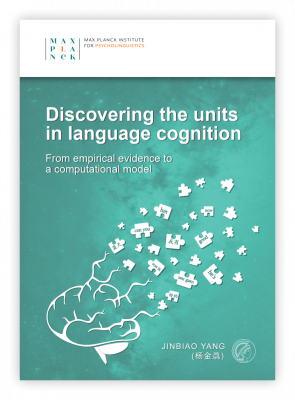Jinbiao Yang, 杨金骉, defends thesis on 20 September

Language is often viewed as a sequence of discrete units. Most people may intuitively determine the units by the spaces, punctuations, and other distinct markers. Linguists found the distinct units insufficient to represent complex language and introduced more types of linguistic units. However, are these units the genuine units that we memorize, perceive, and produce in our daily life?
This thesis proposes to answer this question using the concept of “cognitive units”. Part I of this thesis uses EEG and behavioral experiments to collect empirical evidence about the cognitive units, Part II of this thesis formalizes a theory of the cognitive units on an unsupervised computational model, "Less-is-Better (LiB)", and uses the LiB model to predict the eye fixations during reading. The end of this thesis links the findings to the need for cognitive economy and shows the possibility of extending the notion of cognitive units to other fields.
Share this page